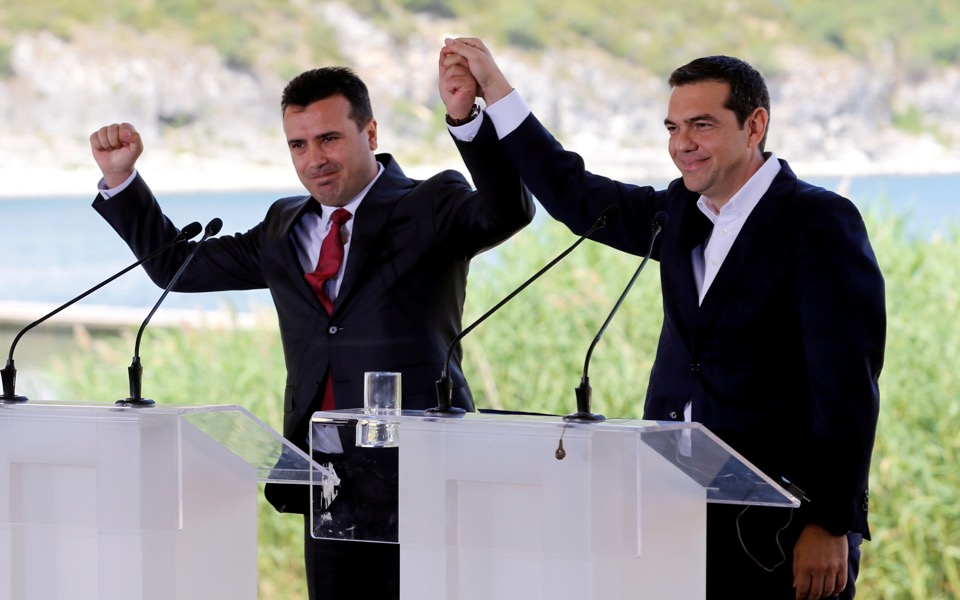The past, the agreement and the future

A close friend of mine who produces a well-known brand of Greek wine in northern Greece, recently told me that his representative in Canada had repeatedly asked him to change the labels on his bottles, which explain that the wine is produced in Macedonia. Many consumers, the representative had said, were confused and believed the wine to the made in the Former Yugoslav Republic of Macedonia (FYROM).
This is only one of many outrageous stories surrounding the name row with FYROM, which, following a 25-year stalemate, has resulted in Greece unfortunately losing the exclusive use of the name “Macedonia.” The entire world – 140 countries – has already recognized the neighboring state under the name “Republic of Macedonia,” while almost every foreigner who hears the word “Macedonia,” assumes the speaker is referring to FYROM.
The agreement presented by the government of Prime Minister Alexis Tsipras includes a change of FYROM’s name to North Macedonia, in line with what Greece has been demanding in the last few years: the addition of a geographic qualifier. At the same time, the deal calls on our neighbors to change their Constitution, to accept that they have no connection to ancient Greek history and to dismantle the kitsch Alexander the Great-themed Disneyland they have installed in their country.
However, contrary to what was being sought, the agreement also recognizes that the citizens of FYROM – primarily Slavs and Albanians – speak a non-existent “Macedonian” language and are called “Macedonians.” Obviously, the deal is not what the Greek side would have liked.
However, under no circumstances is the deal unacceptable, let alone treasonous, since it resolves the biggest problem (the name) and leads to the normalization of our relations with a weak but valuable neighbor, which both Ankara and Moscow have set their sights on.
It is even possible that, if Tsipras had risen to the occasion and sought to cooperate with the opposition instead of trying to split it to achieve political benefits, the reception of the agreement by the people of Greece would have been very different.
The paradox in this situation is that, if developments continue in the current path, main opposition leader Kyriakos Mitsotakis (perhaps in cooperation with the leader of Movement for Change, Fofi Gennimata) will be the one who will most likely be called in 2019 to implement this agreement as a new government and take initiatives to further support Skopje.





